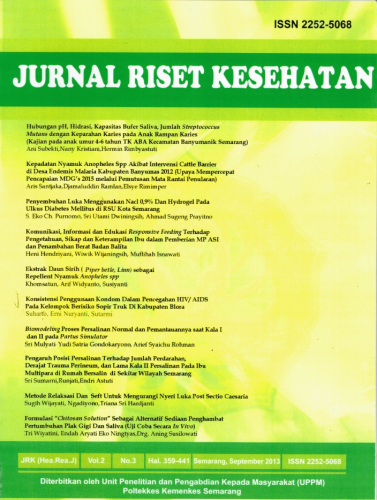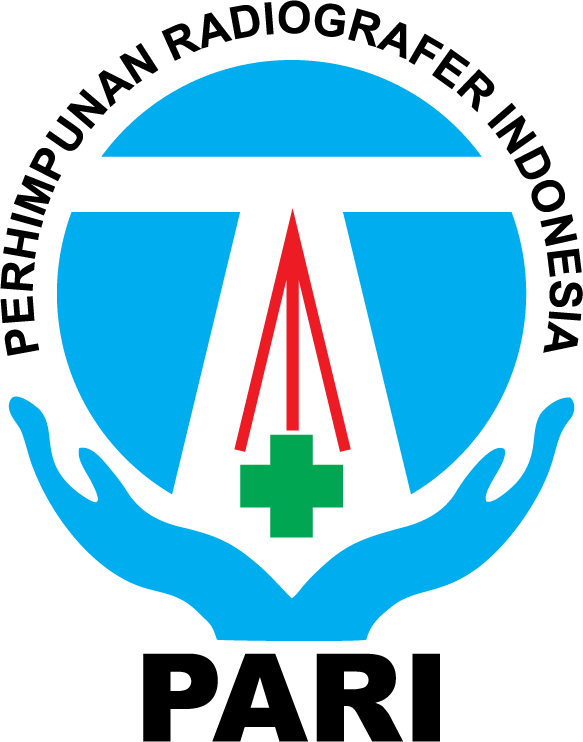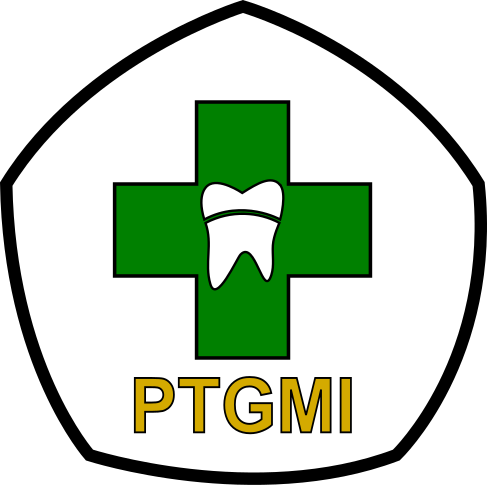FACTORS ASSOCIATED WITH DEPRESSION AND ANXIETY IN YOUNG ADULTS IN METROPOLITAN CITY
Abstract
Depression is estimated to be experienced by 12 million young adults. In 2021, the prevalence of depression among the people was estimated to be about 20% due to the Covid-19 pandemic. The use of social media can be a trigger for depression and anxiety, especially among young people who are very closely related to social media. In addition, other factors can contribute to depression and anxiety, such as working status, age, married status, and gender. Aim of study is to find factors that influence depression and anxiety in young adults. This study used a quantitative analytic observational approach with a cross-sectional which was carried out in September-October 2022. It involved 285 young adult respondents aged 18-25 years who had lived at least 1 year in a metropolitan area (Jakarta, Bogor, Depok, Tangerang, Bekasi). This study showed that depression (66.4%) and anxiety (73.3%) are quite high in young adults. Working status is significantly associated with depression (p=0.0001) and anxiety (p=0.0001). Similarly, duration of social media use is significantly associated with depression (p<0.001) and anxiety (p=0.026). However, gender, age, and marital status are not associated with depression and anxiety.
Keywords
Full Text:
PDFReferences
Akil, A. M., Ujhelyi, A., & Logemann, H. N. A. (2022). Exposure to Depression Memes on Social Media Increases Depressive Mood and It Is Moderated by Self-Regulation: Evidence From Self-Report and Resting EEG Assessments. Frontiers in Psychology, 13(June). https://doi.org/10.3389/fpsyg.2022.880065
BPS. (2022). Badan Pusat Statistik: Konsep. Jakarta: Badan Pusat Statistik Nasional. Retrieved from https://www.bps.go.id/subject/6/tenaga-kerja.html.
Brenes, G. A. (2006). Age differences in the presentation of anxiety. Aging and Mental Health, 10(3), 298–302. https://doi.org/10.1080/13607860500409898
Bulloch, A. G. M., Williams, J. V. A., Lavorato, D. H., & Patten, S. B. (2017). The Depression and Marital Status Relationship is Modified by Both Age and Gender. Journal of Affective Disorders, 223(July), 65–68. https://doi.org/10.1016/j.jad.2017.06.007
Dewi, Y., Relaksana, R., & Siregar, A. Y. M. (2021). Analisis Faktor Socioeconomic Status (SES) Terhadap Kesehatan Mental: Gejala Depresi Di Indonesia. Jurnal Ekonomi Kesehatan Indonesia, 5(2), 29–40. https://doi.org/10.7454/eki.v5i2.4125
Fitria, L., & Ilfdil, I. (2020). Kecemasan Remaja pada Masa Pandemi Covid-19. Jurnal Educatio (Jurnal Pendidikan Indonesia), 6(1), 1–4. https://doi.org/https://doi.org/10.29210/120202592
Gao, J., Zheng, P., Jia, Y., Chen, H., Mao, Y., Chen, S., … Dai, J. (2020). Mental health problems and social media exposure during COVID-19 outbreak. PLoS ONE, 15(4), 1–10. https://doi.org/10.1371/journal.pone.0231924
Handikasari, R. H., Jusup, I., & Johan, A. (2018). Hubungan Intensitas Penggunaan Media Sosial dengan Gejala Depresi Mahasiswa Kedokteran. Jurnal Kedokteran Diponegoro, 7(2), 919–934.
Karim, F., Oyewande, A., Abdalla, L. F., Chaudhry Ehsanullah, R., & Khan, S. (2020). Social Media Use and Its Connection to Mental Health: A Systematic Review. Cureus, 12(6). https://doi.org/10.7759/cureus.8627
Kemenkes. (2021). Kemenkes Beberkan Masalah Permasalahan Kesehatan Jiwa di Indonesia. Jakarta: Redaksi Sehat Negeriku. Retrieved from https://sehatnegeriku.kemkes.go.id/baca/rilis-media/20211007/1338675/kemenkes-beberkan-masalah-permasalahan-kesehatan-jiwa-di-indonesia/
Khairunisa, N. S., Safitri, D. R., Angelia, D., Taufan, M., & Sihaloho, E. D. (2019). Produktivitas Dan Depresi Di Indonesia: Analisis Data Indonesia Family Life Survey 2014. Jurnal Ekonomi Pembangunan, 27(2), 75–84.https://doi.org/10.14203/jep.27.2.2019.75-84
Kominfo. (2017). Survey Penggunaan TIK Masyarakat Indonesia. Jakarta: Kominfo.
Lakasing, E., & Mirza, Z. (2020). Anxiety and depression in young adults and adolescents. British Journal of General Practice, 70(691), 56–57. https://doi.org/10.3399/bjgp20X707765
Liu, C. H., Zhang, E., Tin, G., Ba, W., & Hyun, S. (2020). Factors Associated with Depression, Anxiety, and PTSD Symptomatology During The COVID-19 Pandemic: Clinical Implications for U.S. Young Adult Mental Health. Psychiatry Research, (January). https://doi.org/https://doi.org/10.1016/j.psychres.2020.113172
McGee, R. E., & Thompson, N. J. (2015). Unemployment and depression among emerging adults in 12 states, behavioral risk factor surveillance system, 2010. Preventing Chronic Disease, 12(3), 1–11. https://doi.org/10.5888/pcd12.140451
Ovseiko, P. V., Chapple, A., Edmunds, L. D., & Ziebland, S. (2017). Advancing gender equality through the Athena SWAN Charter for Women in Science: An exploratory study of women’s and men’s perceptions. Health Research Policy and Systems, 15(1), 1–13. https://doi.org/10.1186/s12961-017-0177-9
PDSKJI. (2022). Masalah Psikologis 2 Tahun Pandemi Covid-19 Di Indonesia: Swaperiksa PDSKJI Maret 2020-Maret 2022. Jakarta: Perhimpunan Dokter Spesialis Kedokteran Jiwa Indonesia. Retrieved from http://pdskji.org/home.
Rachmawati. (2020). “Darurat Kesehatan Mental Bagi Remaja”. Yogyakarta: EGSA UGM. Retrieved from https://egsa.geo.ugm.ac.id/2020/11/27/darurat-kesehatan-mental-bagi-remaja/
Shensa, A., Viera, C., Sidani, J., Bowman, N., Marshal, M., & Primack, B. (2017). Problematic Social Media Use and Depressive Symptoms among U.S. Young Adults: A Nationally-Representative Study. Physiology & Behavior, 176(3), 139–148. https://doi.org/10.1016/j.socscimed.2017.03.061.Problematic
Smith, L., Jacob, L., Yakkundi, A., Mcdermott, D., Armstrong, N. C., Barnett, Y., Tully, M. A. (2020). Correlates of Symptoms of Anxiety and Depression and Mental Wellbeing Associated with COVID-19: A Cross-Sectional Study of UK-Based Respondent. Psychiatry Research, 291(January). https://doi.org/https://doi.org/10.1016/j.psychres.2020.113138
Stordal, E., Mykletun, A., & Dahl, A. A. (2003). The association between age and depression in the general population: A multivariate examination. Acta Psychiatrica Scandinavica, 107(2), 132–141. https://doi.org/10.1034/j.1600-0447.2003.02056.x
Turgunova, L., Laryushina, Y., Turmukhambetova, A., Koichubekov, B., Sorokina, M., & Korshukov, I. (2017). The Incidence of Depression among the Population of Central Kazakhstan and Its Relationship with Sociodemographic Characteristics. Behavioural Neurology, 2017. https://doi.org/10.1155/2017/2584187
Viner, R. M., Aswathikutty-Gireesh, A., Stiglic, N., Hudson, L. D., Goddings, A. L., Ward, J. L., & Nicholls, D. E. (2019). Roles of cyberbullying, sleep, and physical activity in mediating the effects of social media use on mental health and wellbeing among young people in England: a secondary analysis of longitudinal data. The Lancet Child and Adolescent Health, 3(10), 685–696. https://doi.org/10.1016/S2352-4642(19)30186-5
WHO. (2021). Depression. America: World Health Organization. Retrieved from https://www.who.int/news-room/fact-sheets/detail/depression
DOI: https://doi.org/10.31983/jrk.v12i1.9446
Article Metrics
Refbacks
- There are currently no refbacks.
Copyright (c) 2023 Jurnal Riset Kesehatan




















































